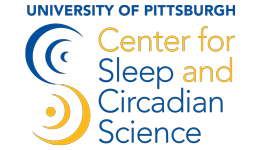Summer SWIM:
Sleep and Circadian Workshop on Indispensable Methods
August 10-14, 2020

Registered attendees will receive a password to access pre-recorded presentations on fundamental concepts in sleep and circadian science and their relevance to public health. These presentations will be available on/about August 3, 2020.
During the Summer SWIM week (August 10-14), there will be live, interactive Q/A discussions moderated by Summer SWIM faculty and will include each of the session presenters. These sessions will also be recorded and will be available to attendees after the meeting.
Summer SWIM Program
Session 1. Sleep: Cells to Populations
Moderator: Martica Hall, PhD
| Why we sleep | Martica Hall, PhD |
| How we sleep: Cells to circuits to physiology | Daniel J. Buysse, MD |
| Major effect modifiers (age, sex, race) | Martica Hall, PhD |
| How do we measure sleep in humans and animals? | Peter Franzen, PhD Rong Guo, PhD |
| Multidimensional indices of sleep | Meredith Wallace, PhD |
| How do we manipulate sleep (sleep restriction, deprivation, enhancement)? | Kristine Wilckens, PhD Yanhua Huang, PhD |
Session 2. Circadian Rhythms: Cells to Populations
Moderator: Colleen McClung, PhD
| Why do we have rhythms and how do they change with environment and lifespan? | Kathryn Roecklein, PhD |
| Unveiling “musica universalis” of the cell: The genetic basis of ultradian and circadian clocks | Bokai Zhu, PhD |
| Preclinical models of circadian rhythms in health and disease | Colleen McClung, PhD |
| How do we measure/manipulate rhythms in cells and animal models? | Ryan Logan, PhD |
| How do we measure/manipulate rhythms in humans | Kathryn Roecklein, PhD |
Session 3. Sleep and Circadian Rhythm Disorders
Moderators: Daniel Buysse, MD and Charles Atwood, MD
| An approach to patients with sleep disorders | Daniel J. Buysse, MD |
| Sleep-related breathing disorders | Charles Atwood, MD |
| Insomnia | Jessica Levenson, PhD |
| Hypersomnias | Erek Lam, MD |
| Circadian rhythm sleep disorders | Brant Hasler, PhD |
| Parasomnias and Restless Legs Syndrome (RLS) | Lana Chahine, MD |
| Pediatric sleep disorders | Deepa Burman, MD |
Session 4. Consequences of Sleep and Circadian Rhythms Disturbances and Disorders
Moderator: Sanjay Patel, MD and Martica Hall, PhD
|
Social determinants of sleep and circadian health |
Sanjay Patel, MD |
|
Impact of sleep and circadian disturbances on brain health |
Kristine Wilckens, PhD |
|
Impact of sleep and circadian disturbances on cardiometabolic health |
Martica Hall, PhD |
|
Impact of sleep and circadian disturbances on pregnancy and pregnancy outcomes |
Marquis Hawkins, PhD |
|
Impact of sleep and circadian disturbances on cancer |
Marissa Bowman, MS |
|
Impact of sleep and circadian disturbances on mental health |
Adriane Soehner, PhD |
|
Impact of sleep and circadian disturbances on substance use and abuse |
Brant Hasler, PhD |
There will also be 11 live, interactive “Meet the Experts” sessions on hot topics in sleep and circadian science.
Meet the Experts Sessions
Expert |
Topic |
| Colleen McClung, PhD | Genetic, molecular, and omics approaches to sleep and circadian science |
| Christopher Kline, PhD | Research grade versus commercially available actigraphy devices: The good, the bad and the possible |
| Martica Hall, PhD Bokai Zhu, PhD |
Sleep and rhythms across the lifespan: Aging, co-morbidities, or something more complex? |
| Marquis Hawkins, PhD | Novel tools for causal inference using observational data |
| Ryan Logan, PhD Brant Hasler, PhD |
Translating basic sleep and circadian science to public health |
| Daniel Buysse, MD | Designing and conducting clinical trials in sleep and circadian medicine |
| Sanjay Patel, MD Martica Hall, PhD |
Racial/ethnic differences in sleep: Disparities and/or differences |
| Stephen Smagula, PhD | Rest activity rhythms: What are they and how can they be used in sleep and circadian science? |
| Charles Atwood, MD Adam Bramoweth, PhD Brant Hasler, PhD |
Telemedicine for sleep and circadian rhythms |
| Daniel Patterson, PhD | Field research in sleep and rhythms in first responders |
| Daniel Buysse, MD Charles Atwood, MD |
Treating sleep and rhythm disorders to improve health |


